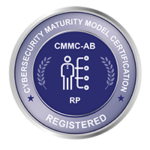Stolen Playbook iPad Sparks Security Concerns for National Football League (NFL) Teams
In a recent unsettling event, Los Angeles Rams offensive lineman Conor McDermott found himself at the center of a possible security breach when his iPad, containing vital team information, was stolen from his car. The iPad housed the team’s playbook—strategies that could potentially affect future game outcomes. While the thief’s ability to access the sensitive information is unknown, the incident has shed light on a growing issue in the NFL: the vulnerability of data stored on mobile devices.
The Rams aren’t the only team to rely heavily on technology, with many NFL franchises and players using iPads to access playbooks, review game footage, and communicate strategies. However, this convenience comes with risk. As teams digitize their operations, they rely on simple security measures, such as password protection and Mobile Device Management (MDM) systems, both of which are insufficient in today’s rapidly evolving cybersecurity landscape.
The Pitfalls of Simple Password Protection and MDM Solutions
Many organizations still rely on basic password protection or outdated security features, like traditional MDM solutions, to safeguard sensitive data on mobile devices. However, as hackers become more sophisticated, these defenses have proven to be highly vulnerable.
- Weaknesses in Password Protection: Passwords are notoriously easy to crack. Even if an NFL team relies on strong passwords to secure their playbooks, hackers now have access to advanced tools that can bypass these barriers. Simple password protection offers little defense against modern, skilled cybercriminals who can use brute force attacks, phishing schemes, or social engineering to gain access to mobile devices. Once the password is compromised, the entire playbook could fall into the wrong hands.
- Limitations of MDM Solutions: While Mobile Device Management (MDM) systems were designed to manage and secure mobile devices remotely, they are increasingly outdated in the face of modern threats. MDMs often focus on device management rather than robust data protection, leaving gaps in securing the sensitive content within. Furthermore, MDMs lack the granular security controls needed to stop data from being shared or exfiltrated once a device has been compromised.
Sophisticated hackers can exploit vulnerabilities in MDM systems by disabling features or bypassing device-level controls. With the growing use of jailbreaking or rooting tools, a determined hacker could potentially gain access to the playbook on a stolen iPad, even if it’s locked down with an MDM solution.
SyncDog: The Next Generation of Mobile Security
This is where SyncDog, Inc. steps in as a game-changer – an almost literal 12th man on the defense. SyncDog offers a far more comprehensive approach to securing sensitive NFL information than simple password protection or MDM solutions. If SyncDog had been used on the stolen iPad, the Rams could have breathed easier, knowing that their playbook would be virtually impossible to access.
Here’s how SyncDog overcomes the limitations of outdated security methods:
- Encrypted Workspace: Unlike standard password protection, SyncDog’s encrypted workspace ensures that even if hackers manage to bypass passwords or device-level security, they will still be unable to access any sensitive data. This encryption is military-grade, providing a fortress-like layer around the playbook, game footage, and communications.
- Remote Wipe: MDM systems often fail to completely erase sensitive data from compromised devices, but SyncDog’s remote wipe function guarantees that the entire encrypted workspace can be erased at the first sign of a breach. In the case of McDermott’s stolen iPad, the team could have remotely deleted every bit of sensitive information before it ever saw the light of day.
- Data Containerization: SyncDog doesn’t just protect the device—it protects the data itself. Even if a hacker were to bypass the iPad’s security, they would find that the playbook and other sensitive files are locked within an encrypted, containerized environment. These files cannot be removed, copied, or shared without proper authorization.
- Defense Against Sophisticated Attacks:SyncDog operates under a Zero Trust Architecture, meaning no one—inside or outside the organization—is trusted by default. Each attempt to access data is strictly authenticated. Unlike MDM systems, which focus on the device, SyncDog keeps hackers from accessing the data, even if they manage to root or jailbreak the stolen iPad.
Contact SyncDog for more information !
Why NFL Teams Should Adopt SyncDog
In an era where technology drives competitive strategy, NFL teams must recognize that their current security measures are not enough to protect their playbooks and sensitive data. A stolen iPad could easily fall into the hands of a rival team or betting syndicate, where the information could be used to undermine a team’s success on the field.
The Rams’ incident is a wake-up call for the entire league. SyncDog offers the kind of robust, future-proof security that can prevent stolen devices from becoming a devastating breach of team secrets. Simple passwords and MDM solutions are relics of a bygone era. With SyncDog, NFL teams can protect their data from even the most advanced cyber threats, ensuring that playbooks, game strategies, and internal communications are safe.
It’s time for the NFL to adopt SyncDog across the board, safeguarding the league’s most valuable asset—its data. With mobile devices becoming essential tools in the sport, a comprehensive security solution like SyncDog is no longer optional; it’s critical to maintaining the integrity of the game. Try SyncDog for yourself !
Contact us to learn more or request a demo to see SyncDog in action.
